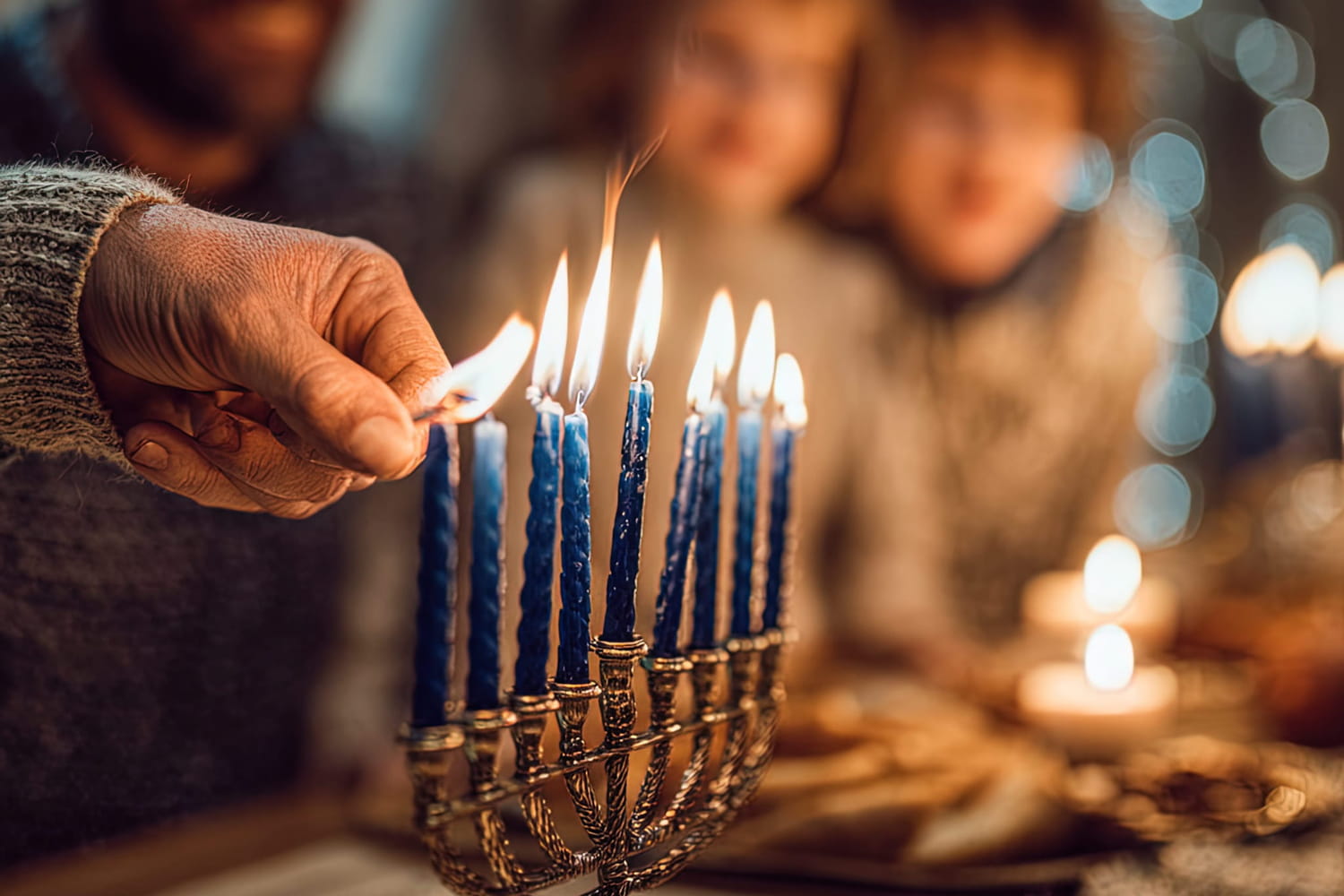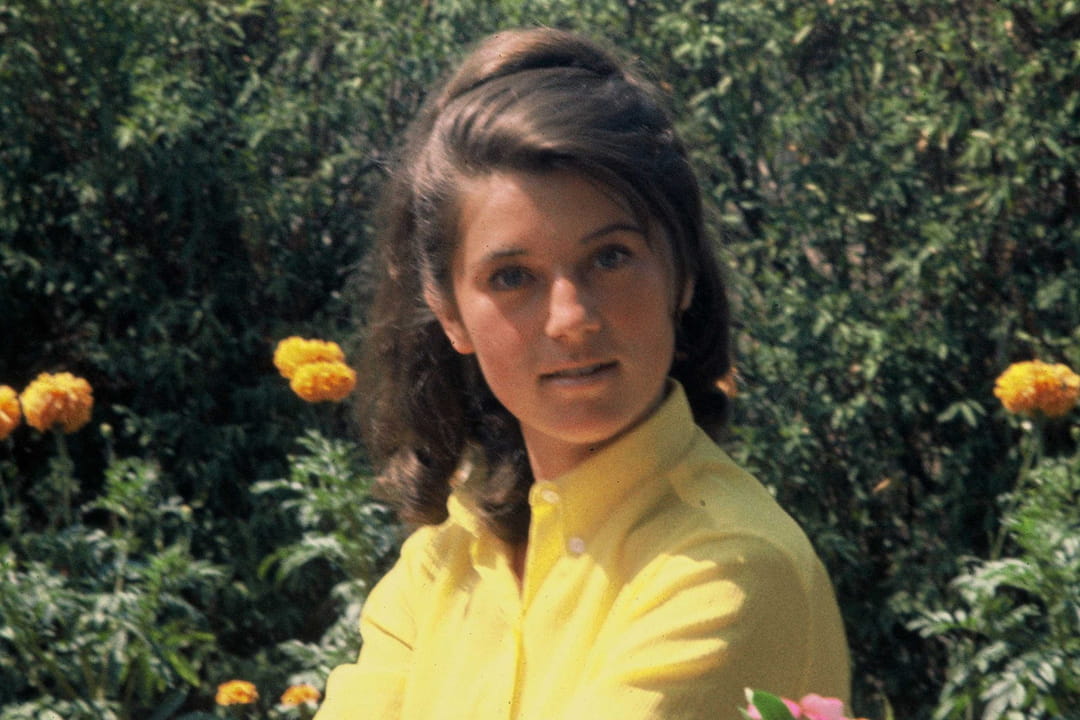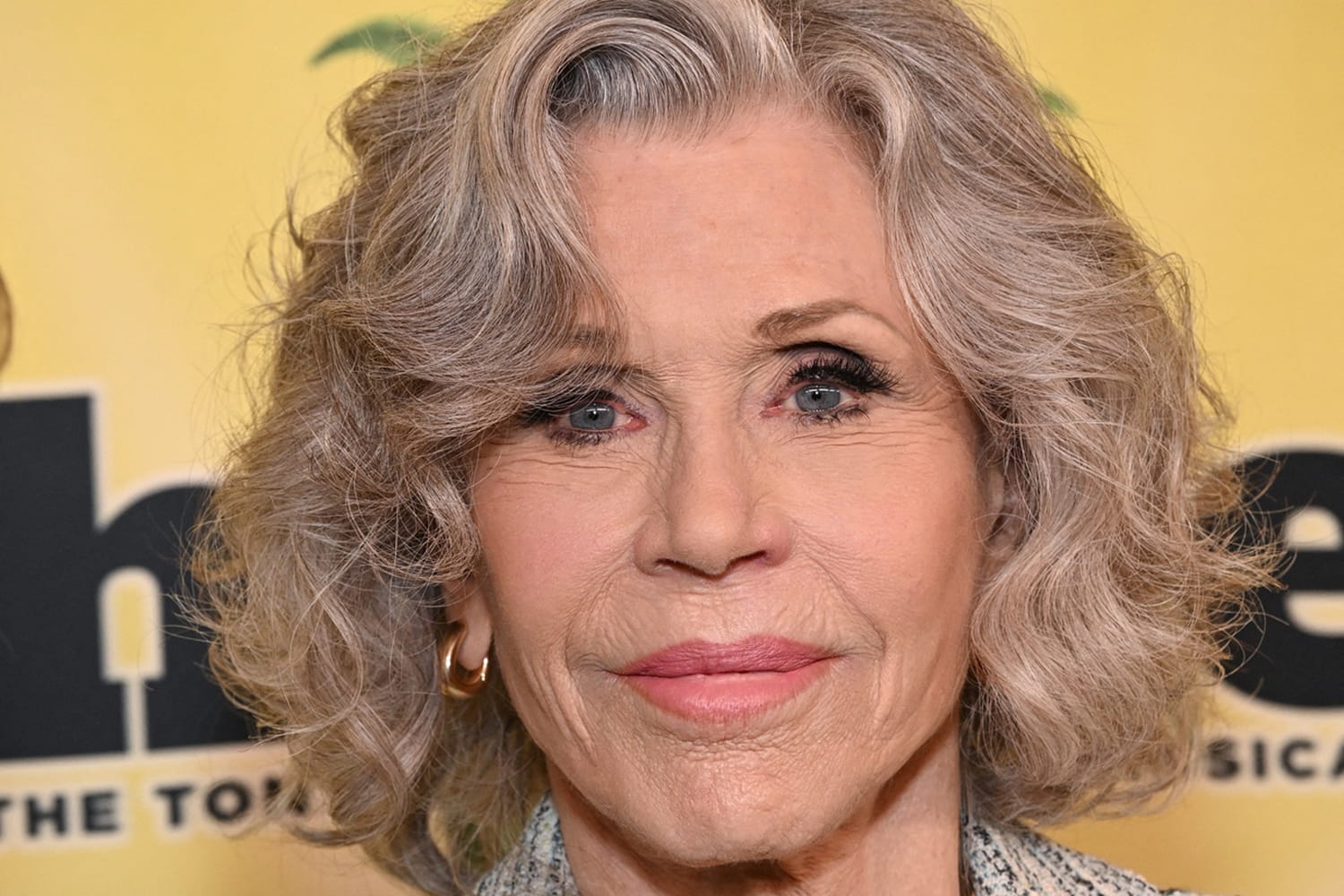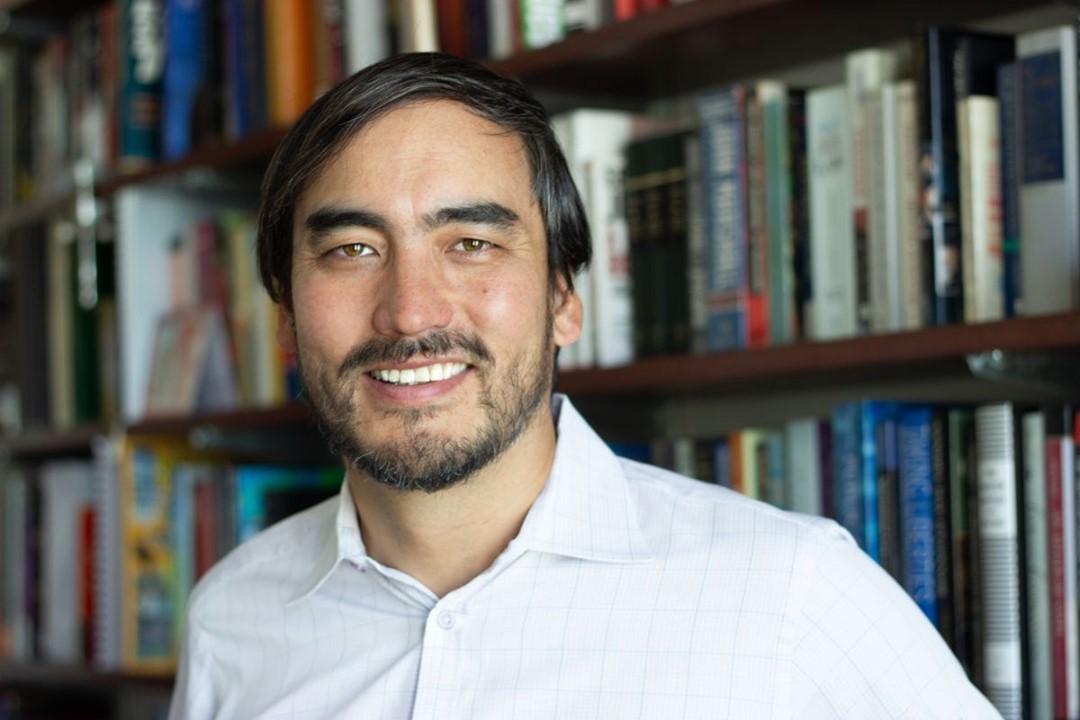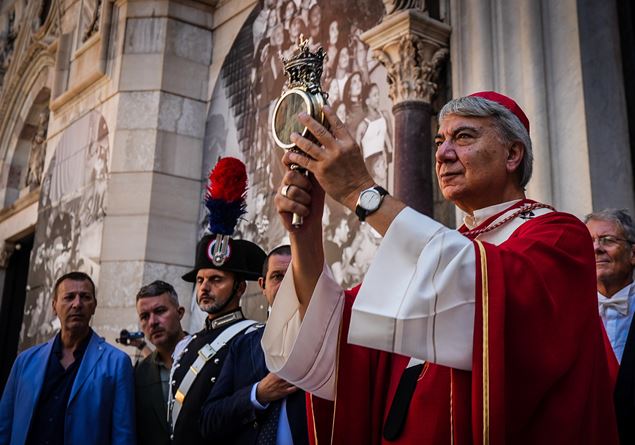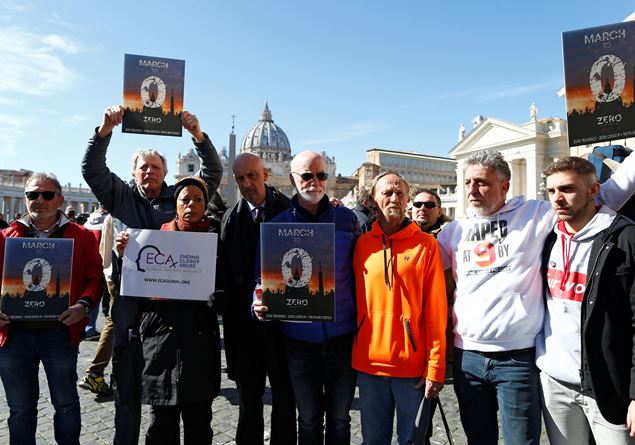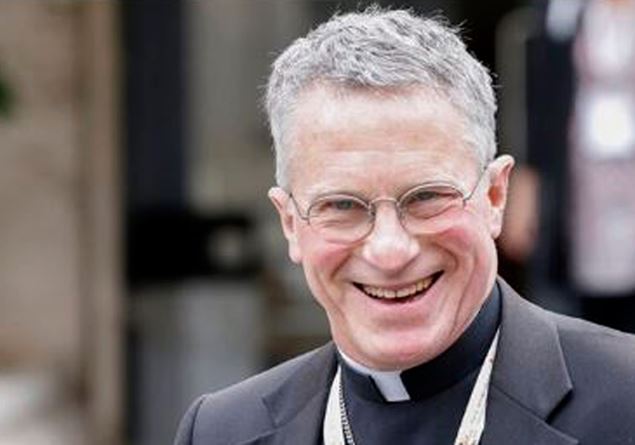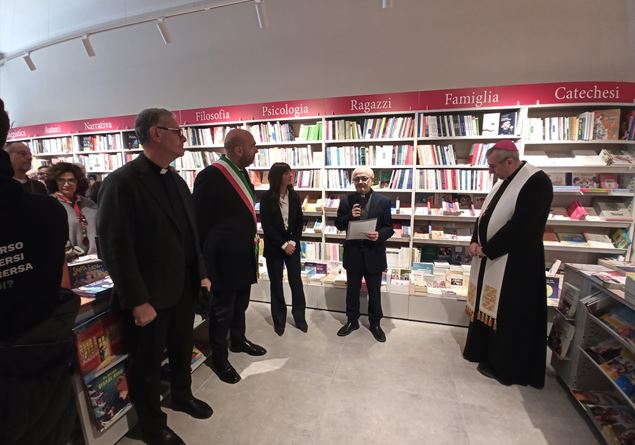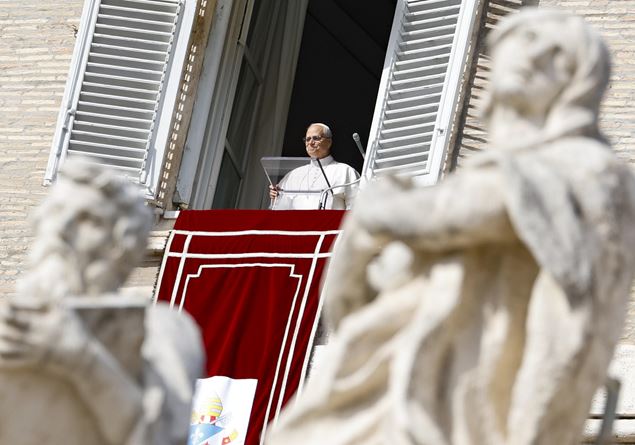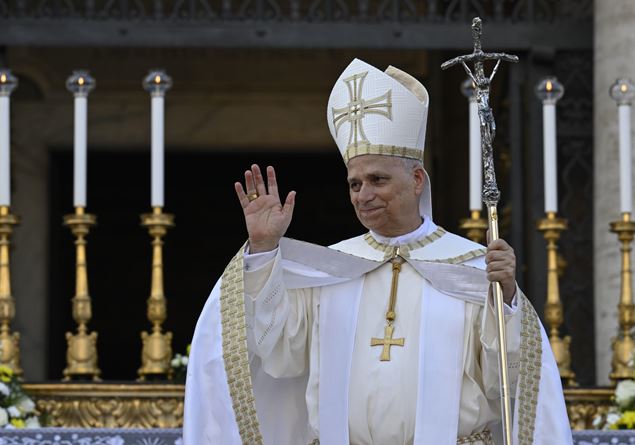«The situation continues to be very serious in the whole strip of Gaza with the bombings. A war situation continues and the death continues that has already taken away dozens of thousands of people: more than 18 thousand children have been killed and the hostages have not yet experienced the right to live in freedom, the wounded and the sick still do not yet have the possibility of care because everything is missing from the hospital. The weapons took over ».
This is the testimony of Father Gabriel Romanelliparish priest of the parish of the Holy Family of Gaza, in a video message made listening to Friday morning in Cathedral of Naples Before the beginning of the Eucharistic celebration for the feast of San Gennaro. To announce the message, a moving archbishop of Naples, Cardinal Domenico Battaglia that in his homily – which we publish fully below – has connected the blood of the patron saint to the one that flows in Middle East, in Ukraine And in all those places where a war is fighting: «Today the word blood burns us on us because blood is a language that we all understand and that asks everyone’s account. Gennaro’s blood ideally mixed with the blood spilled in Palestine, as in Ukraine and in every wounded land where violence is believed omnipotent and instead it is only noise. The blood is sacred: every innocent drop is an inverted sacrament, “said Don Mimmo,” if I could, I would collect the blood of every victim, children, women of every people in an ampoule, and I would exhibit it here, under these times, because No rite absolves us from responsibility, because prayer feels the weight of every wound and does not slip away. And today, with modesty and with fire, I say: it is the blood of every child of Gaza that I would put exposed in this cathedral, next to the saint’s ampoule because there are no “other” tears: all the earth is a single altar “.
Here is the full homily:
Sisters and brothers,
Today Naples stops like the sea when the wind subsides. It is an inner subsidence, the feeling of a day of celebration, of faith, of identity. The streets are navated, the balconies, the city an entire cathedral. In the center, not an object, but a sign: an ampoule, a blood, a name – Gennaro.
Here we celebrate not a trophy, but a living memory: that of the martyrs that love has not left alone. The time, which quickly empty the names of the dominators, instead retains the names of the victims – Written in the cry of the poor, in the cry of the Innocenti, in the silence of the last.
Even when they escape us, God knows them and affects them in his palm trees. The word today puts us on the lips a phrase that is a passage and promise: “Who will lose their lives for my and the Gospel will save it” (Mk 8:35). It is not a motto for poster, it is a bridge between two banks.
On that bridge Gennaro passed through: the meat delivered, the fear won, the freedom returned to its author. He did not choose to save himself: he chose to give himself. And the blood, which the violent believed to be a seal of oblivion, became a voice: a voice that still preaches the city and calls her to trust the Gospel more than any calculation, more than any prudence. We look at that sign not with superstition, but as an invitation to bet everything on the custody.
Today the word blood burns us on us. Because blood is a language that we all understandand who asks everyone’s account. Gennaro’s blood ideally mixed with the blood spilled in Palestine, as in Ukraine and in every wounded land where violence is believed omnipotent and instead it is only noise.
The blood is sacred: each innocent drop is an inverted sacrament. If I could, I would collect the blood of every victim in an ampoule – children, women, men of every people – and I would exhibit it here, under these timesbecause no ritual absolves us from responsibility, because prayer feels the weight of every wound and does not slide away. And today, with modesty and with fire, I say: it is the blood of every child of Gaza that I would put exposed in this cathedral, next to the saint’s ampoule. Because there are no “other” tears: the whole earth is a single altar.
From this cathedral that breathes like an ancient chest, a clear, direct appeal is raised, without a graduate graduate: Listen, Israel: I don’t talk to you as an opponent, but as a brother in the human. I call you with the name with which writing convenes the heart to the essentials: listen. Ceases to pour Palestinian blood.
Cease the sieges that remove bread and water; They cease the blows that crumble houses and heart disease; Turn the reprisals that exchange security with crushing, cease the invasion that suffocates all hope of peace.
The security that tramples a people is not security: it is a fire that, sooner or later, burns the hand that believed it tamed him. I know the weight of your mourning, the wounds it brings to meat and consciousness. Every terrorism is a sacrilege, every kidnapping a shadow on the human, every rocket against civilians a sin that shouts. But today – in front of the blood of the martyr – I call you by name: you, Israel, stop.
Open the passes, let it pass treatments and bread, suspend the fire that does not distinguish and multiply the orphans. I don’t ask you weakness: I ask you greatness.
The greatness of those who arrest their strength when the profane force justice; of those who recognize that the only victory that saves is the one on revenge.
Sisters and brothers, Naples, despite his wounds, is a city of peace. And from this city overlooking the Mediterranean I would like to generate a movement of hope and peace, because as the pyre said it is necessary to start from the cities to unite the nations.
And I would also like this contagion of reconciliation to be based on a clear language, including by all peoples of all cities that overlook their fears and hopes on this sea.
Because the lie begins with words, especially from ambiguous, anesthetized ones: Drones are remote controlled riflements; The “collateral damage” are faceless children; A military expenditure that exceeds school and health is not security but collective suicide.
We convert the arsenals into hospitals, the profits of war in scholarships, the bunkers in libraries this is the only evangelical geopolitics worthy of the name we invoke.
Let’s face it with the frankness of the saints: Evil is not an idea, it is a chain. It has offices, accounting, bonuses, industrial plans. The war does not “burst”: it is produced, financed, rewards.
Every military budget that swells like a sail is bad wind against the flesh of the poor. Any “expansion of defense spending” that exceeds school and health does not make us sure: it makes us more alone and poorer.
The cry of the poor and the last, the blood of the children and the crying of their mothers, tells the powerful of this land, to the institutions of our union, Knesset, governments, to every military command: stop the spiral!
Look for justice before the boundaries, rights before the fences, dignity before calculations. Peace is not built with check-point and life interruptions, but with equal right, mutual security, political mercy.
The blood shouted by the rubble is not a topic: it is a anaphal of God who repeats: what have you made of your brother? Sisters and brothers who sat in the parliaments, I ask you: how can you choose the missiles before bread? Where did you lose the face of your brothers and sisters?
Sisters and brothers who operate in finance and in the big markets, I ask you: how can you exult when the war stretches and the defense actions go up?
Don’t hear the cry of your brothers and sisters? Sisters and brothers entrepreneurs and shareholders whose industries falsify the Gospel of work, merging in granate plows, I ask you: what have you made of the dignity of your brothers and sisters?
And all of us, with our sleeping consciences, which we let the pain slide like water on marble, addicted to horror, closed in the small fence of comfort that we want to defend at any cost … We too must ask ourselves: what have we made of our brothers and sisters?
Here, in Naples, we ask this question every day because our city is a wounded and bright altar, where we know the blood: that of the lost young people, that of the innocent victims, the invisible one of those who stop dreaming.
The southern question is not an archived chapter: it is a page that asks for new ink – work, school, care, culture. It needs not of administrators of the emergency, but artisans of the future. Because politics, if it is worthy of its name, is a liturgical art: it puts order not to adorn, but to serve.
And looking at the whole of Italy, we let the numbers make faces: young people linked to precariousness as a raft; elderly people forced to choose whether to cure yourself or eat; Families who count the cents as breaths are counted.
It is here that the Gospel is measured: “I was hungry … I was thirsty … I was a stranger …” – not as a metaphor, but as an agenda. “What can we do?” – You ask me.
It is Peter’s question when the boat creaks.
The martyrdom that is asked of us today is not that of blood, but that of consistency. Of the stubborn mildness of those who do not let themselves be bought. Of the creative patience of those who educate without shortcuts.
Of the industrious loyalty of those who serve the poor without altars. Of the happy sobriety of those who spend less for themselves and invest in those who cannot return. It is the martyrdom of attention: it costs more than gold.
But the Gospel not only asks us for goodness: he asks us for justice. Justice is not resentment: it is the order of love. It is a rule that sanctifies time, it is a job that does not use, it is a table that widens places, it is power that does not self-assolve.
Europe will not be saved with walls and with cynical routes, but remembering that it was born from monasteries and cathedrals: schools for the children of the poor, markets that closed on Sundays, a community that founded bonds.
Not nostalgia, but discipline of the future.
Let’s go back to the blood. Look at it. Not as curiosity, but as a mirror.
Gennaro’s blood is not a talisman: it is an appeal. Each drop says: don’t betray. Do not betray the Gospel with a cult without conversion. Do not betray the poor with an axion without choices.
Do not betray peace with words without a project. Do not betray children with schools without masters and cities without courtyards. For this reason, today, we dare to ask for a precise miracle.
San Gennaro, brother and martyr: Not only melt your blood – which is a sign – but our heart, where everything is decided.
Disarm our fears disguised as prudence.
He sweeps away the patina of cynicism that attacks the faith. Give us a courage without theater and choices that do not make news but change their lives.
Look at Palestine, look at Ukraine, look at the south of the world: how many have no more tears and lend us their eyes.
Make peace is not a slogan, but a practice. Let each community become waiting room of resurrections: canteen for those who are hungry, brings for those who do not have a home, language for those who cannot speak, company for those who do not hold alone. And here, in our city, do that under each balcony you see a boy with a book and not with a weapon; that each courtyard is a playing field and not of drug dealing; That every clean company is worth more than any dirty money.
If today we ask for a prodigy, make this: that the prodigy starts with us. That a peace site opens in each: one more chair at the table, an hour more to educate, one euro less for themselves and one more for those who cannot.
And when someone wonders if the blood has melted, we can answer: yes, the blood has melted. Not only here, not only today, not only in the ampoule: he melted in hearts.
He started flowing; He brought oxygen to his hands, grace to the eyes, strength on his feet. And the city – this city we love – will resume its great step, and this world – for which God the Father has given his Son Jesus, in whose blood we are all loved and saved – will resume his Holy Pass: the Passo della Pace. Amen.”
